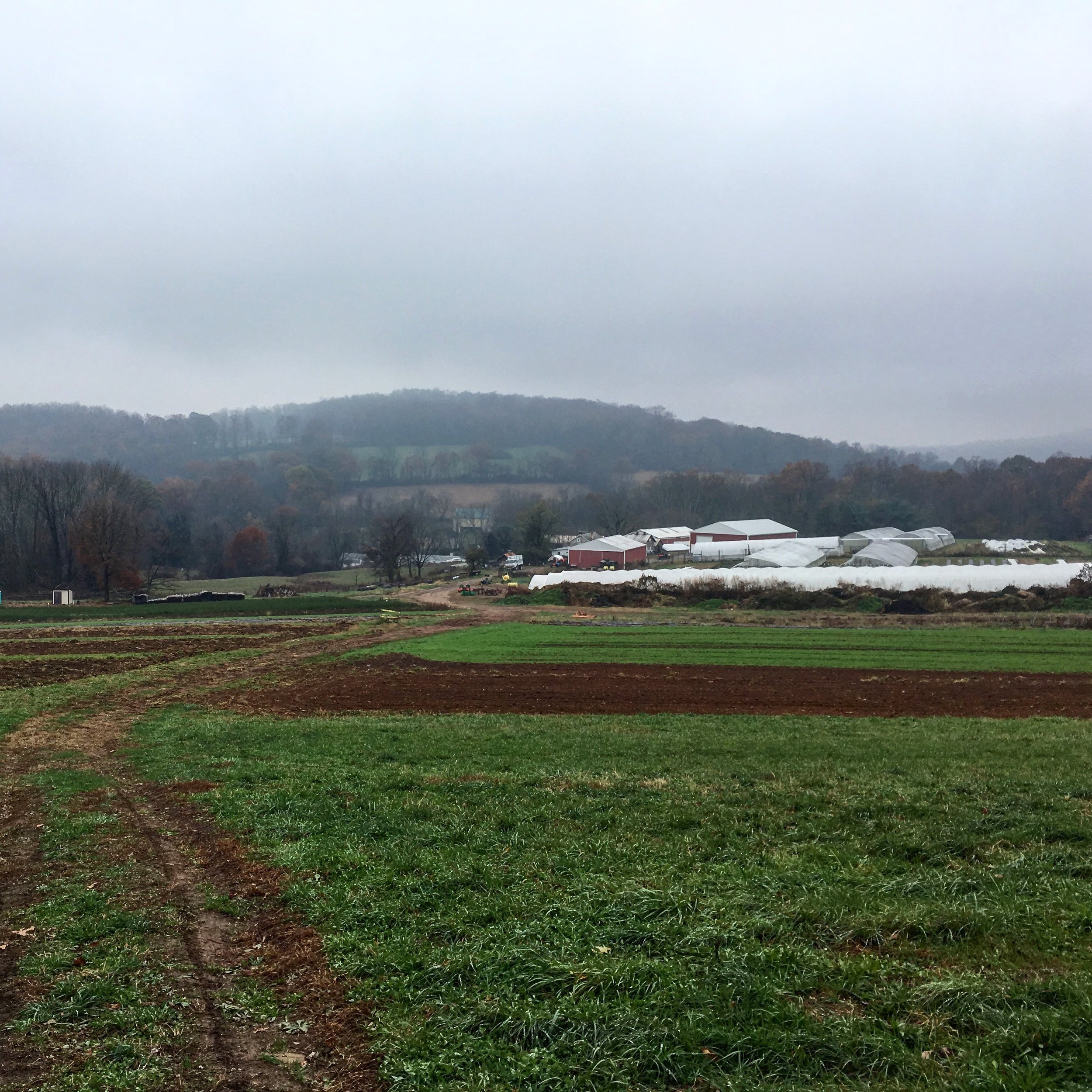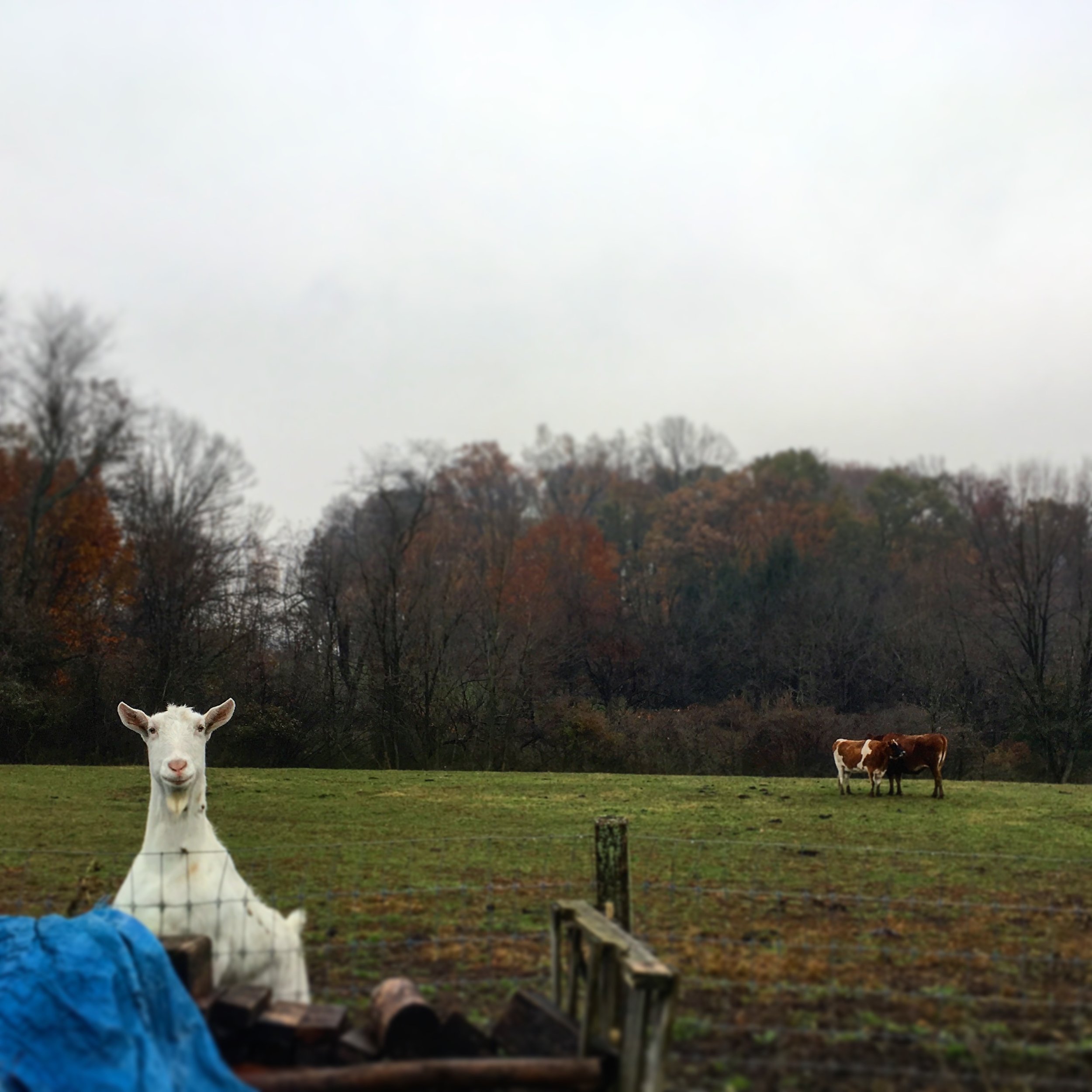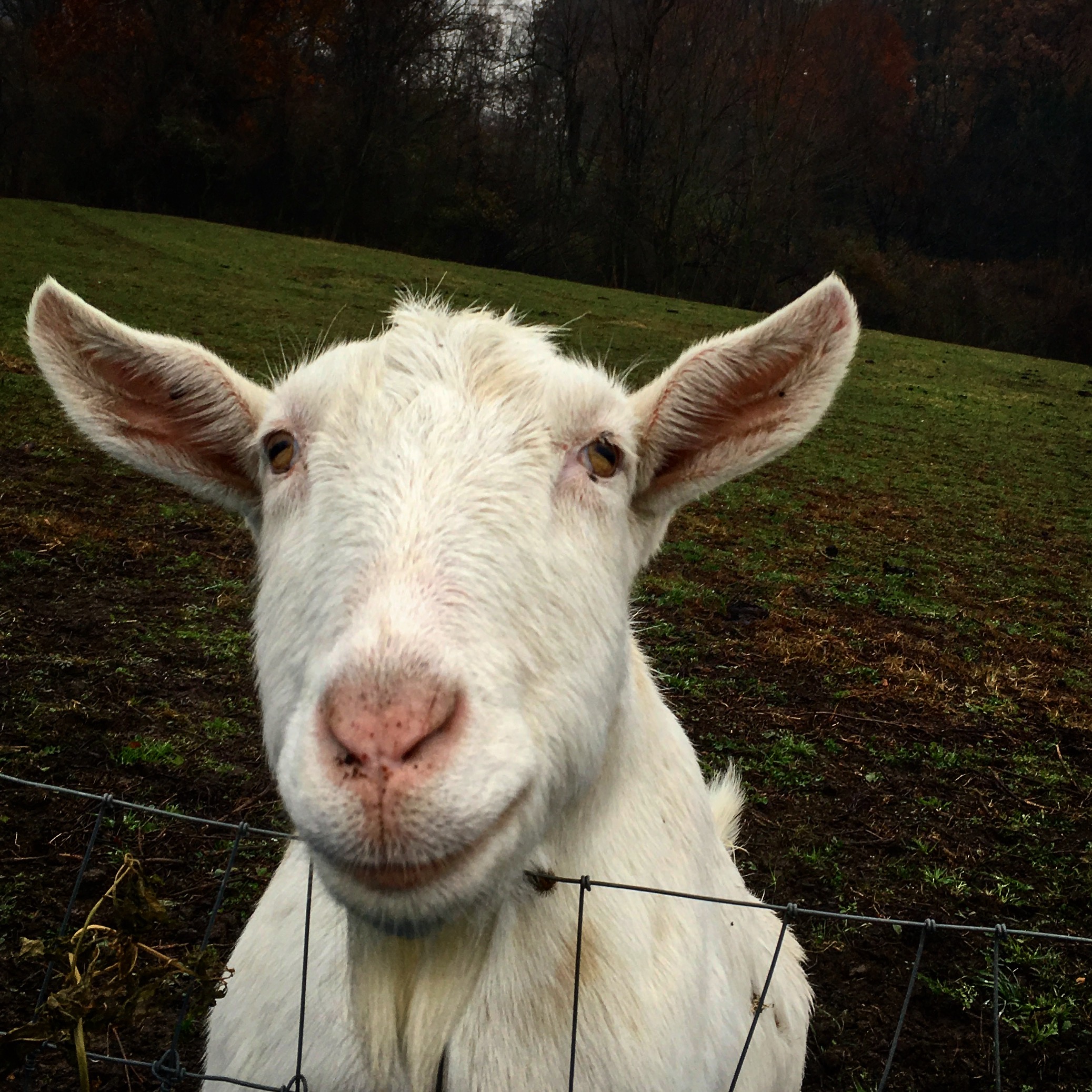Monday at Eckerton Hill

It is almost Thanksgiving, and the weather is such that I expect to see Ichabod Crane on his horse as I drive down the winding roads to Eckerton Hill. Cold, damp, grey 9am. Coffee in hand, I make my way up to the sounds I hear in the packing barn. Mervin and Kurt are discussing the layout of the tables and pallets for the crops that will be packed. There are tables for the produce from the fields, and tables for the produce that will be coming back from the markets.
I watch and try not to get in the way. Taking cues as to what needs to be done, I help move tables, and sweep away chili dust as decisions are made.
The greens need to be in front of the sink. They will be washed, spun, and packaged. There are chilis. There are tomatoes. There are squash. Every item has an area, and planning includes sequencing of actions, motions of the workers, space they require. With basic layout decided, attention turns to the perimeter.
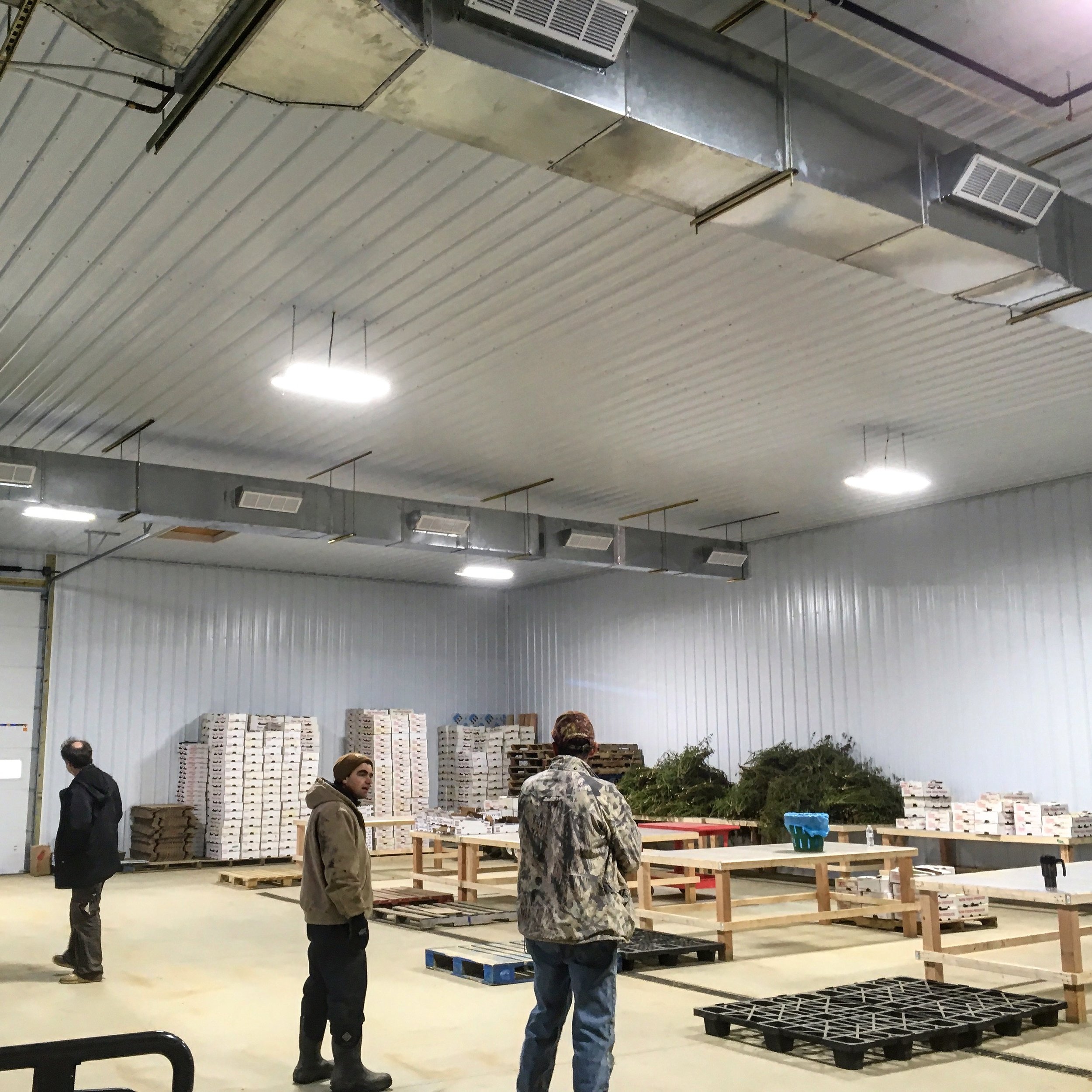
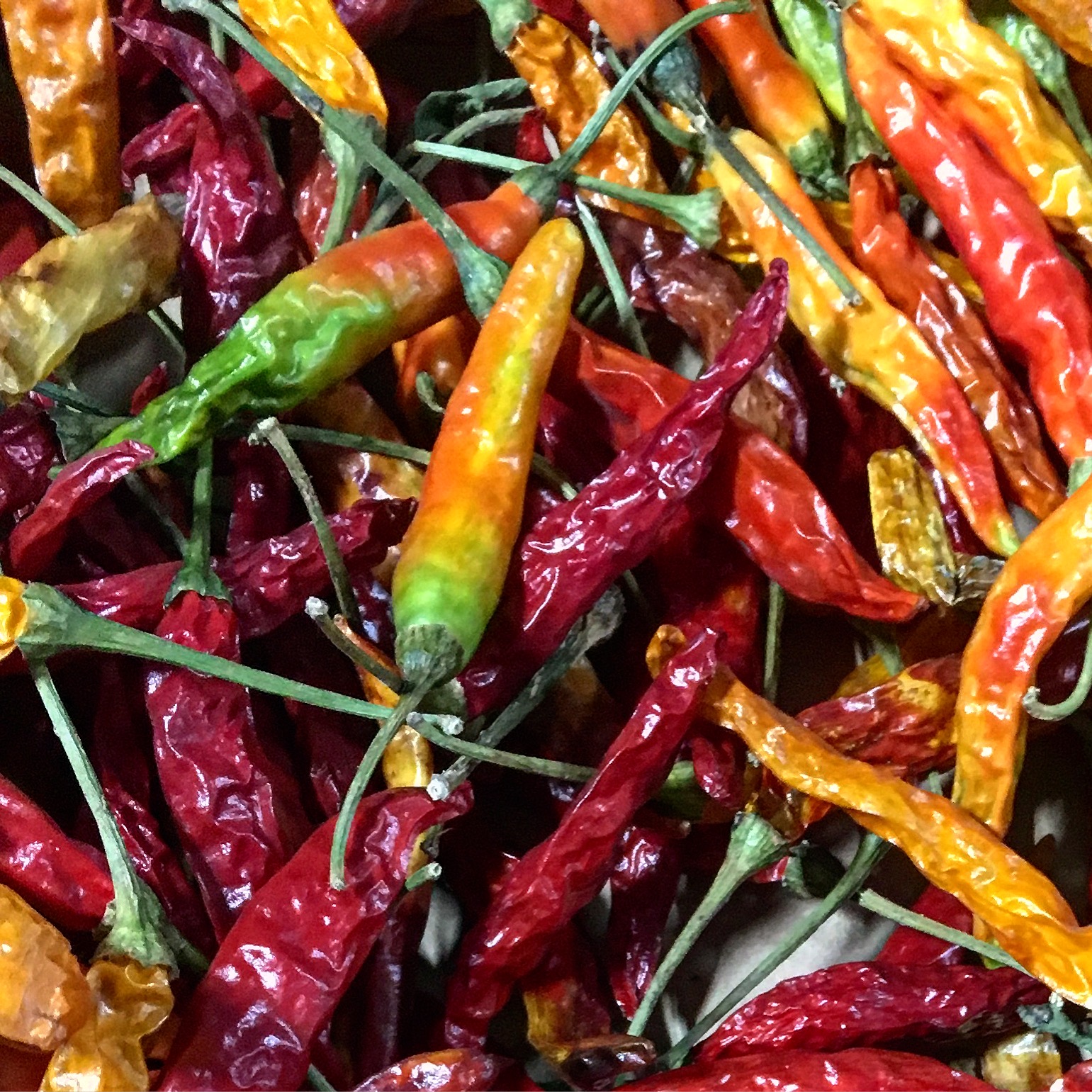
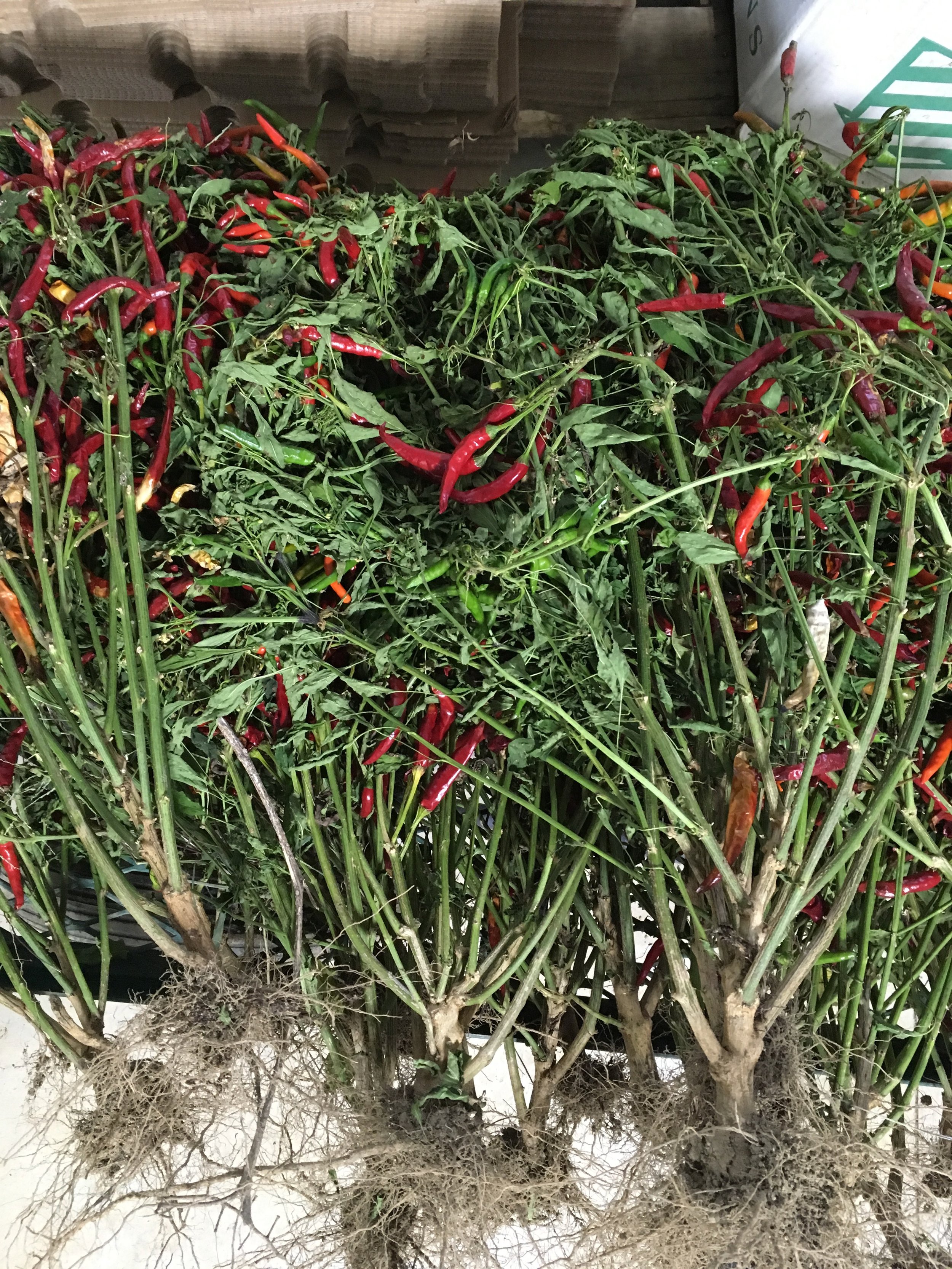
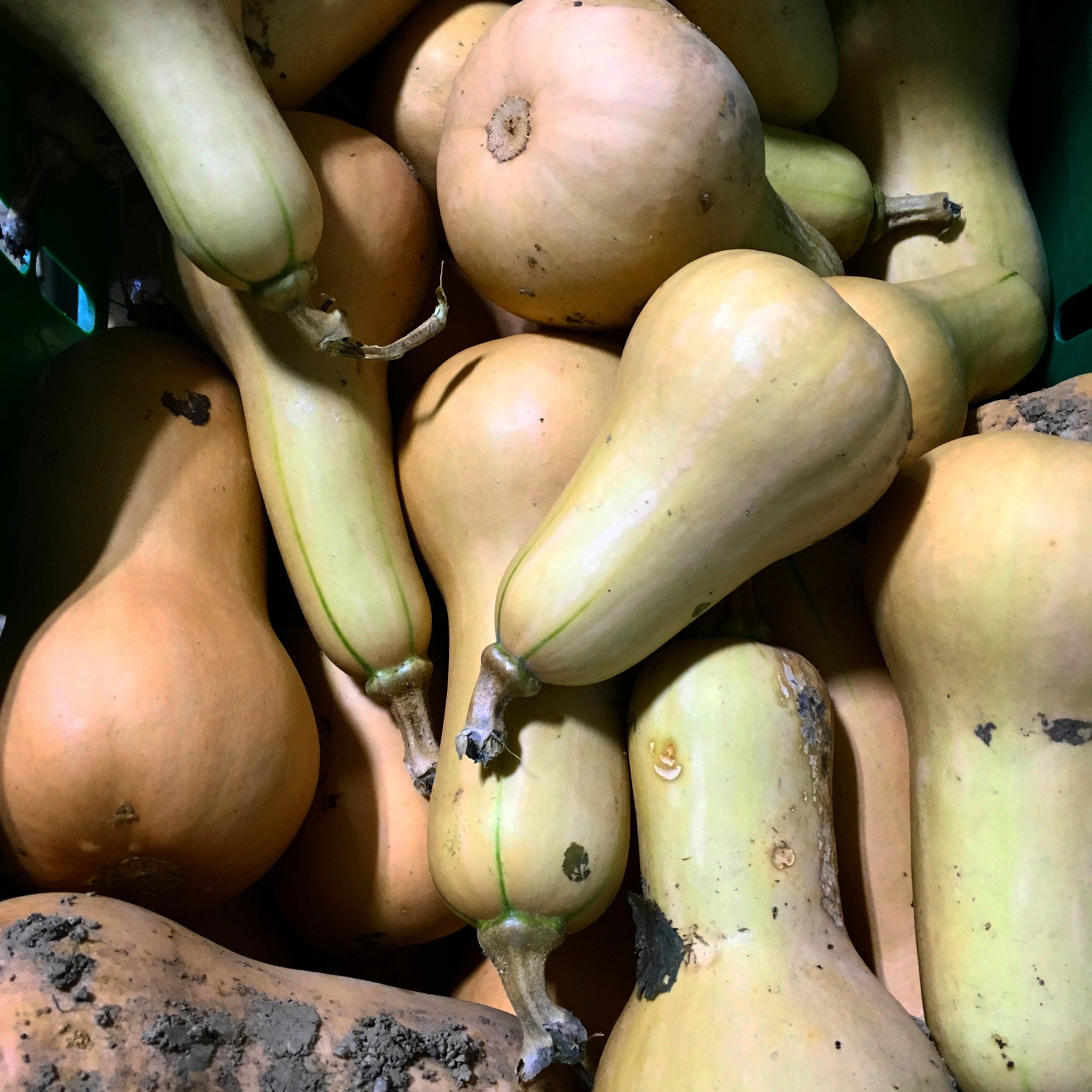
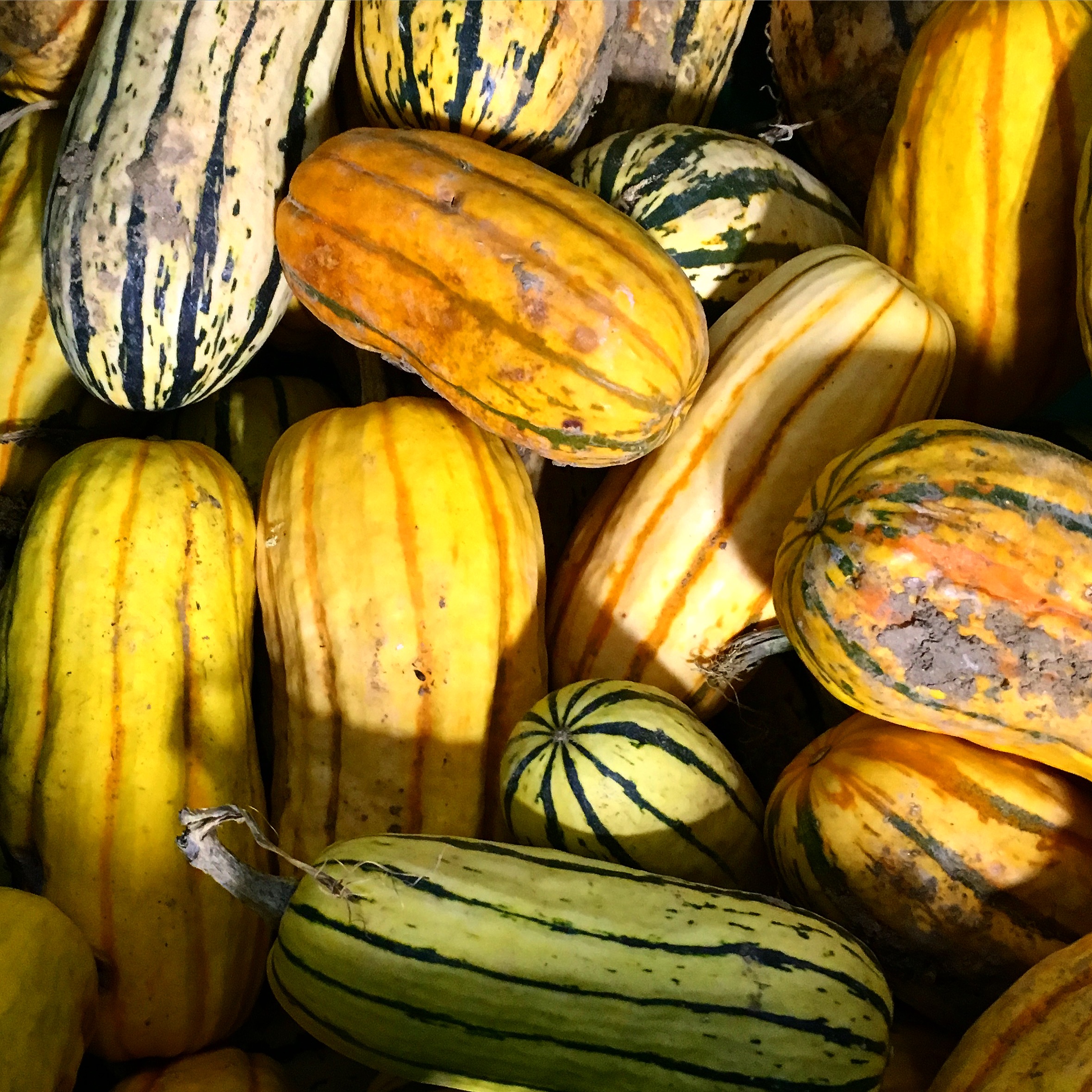
The cardboard flats need to be moved, because of the way the truck will come in from market at the end of day. Before they can be moved, the back wall where they should go needs to be organized and cleaned out. And so we begin. I kinda feel like I am inside Tertris, as I move back and forth between the two walls, stacking flats almost higher than I can reach. Two rows in the back lengthwise, two rows in front widthwise to ensure stability. They are grouped by size and containers. All just preparation for events later in the day.
While I was inside a bright, heated space, two crews made their way out to pull tomato stakes so cover crops can be planted. Tim rotates his crops annually, replenishing the soil with rye, vetch and clover. These crops fix nitrogen in the soil, help with erosion, and contribute organic mass with their decomposing matter. This is important.
At the end of WWII, the US was the world leader in nitrogen production, with 10 large-scale nitrate factories, and no foreign competition. The development and introduction of a new hybrid strain of corn dependent upon high fertilizer application encouraged the shift from production of munitions to production of fertilizer. As of 2012, the US was importing over 50% of demanded nitrogen fertilizer. I was unable to find more recent statistics because the USDA ERS site, which used to house ALL THE RAW DATA does not have it available to the public anymore. With a last update of December 23, 2016, the message reads: "Updates to this data product are suspended."
Excess nitrogen fertilizer ends up in our waterways and is responsible for massive algae blooms. It is the cause behind increased nitrous oxide emissions in our atmosphere. It destroys organic matter. The production of nitrogen fertilizer is closely tied to the fracking industry for energy, for its 'cheap, natural gas'. And it is all unnecessary.
Crop rotation and cover crops grant a degree of sovereignty unknown to farmers made intentionally reliant upon seed and fertilizer from multinational corporations. Regenerative farming practices are not, nor have they ever been, impractical or unattainable as common farming practices. They are impossible to monopolize.
Talk about the weather is not small talk with a farmer. Hail, heavy rains, drought, and sudden cold snaps are perennial concerns for people who work the land. With so much out of their control, it is easy to understand a willingness to believe a person who comes to them and says, "I have this seed that will guarantee you yield, and if you use it with this fertilizer, you just can't lose. Just two crops will guarantee an income, and, you help feed the world." Unfortunately, if it sounds too good to be true, it is.
Talk about soil is not small talk with a farmer. Everything that goes in gives and takes in unequal measure. Diversity and balance of crops, and clean water keep the soil healthy. This is not something that can be replicated with terminator seeds and strain specific fertilizer, and water contaminated by industrial waste.
Systems theory is a term to describe "the interdependence of relationships created in organization." I am a systems thinker, and recognize and understand interdependent structures of dynamic systems. My interests have always been synax and human structures. The brief time I have spent on two local farms has made me realize that farmers are the original systems thinkers. Their world is a lot bigger than just the man made one.
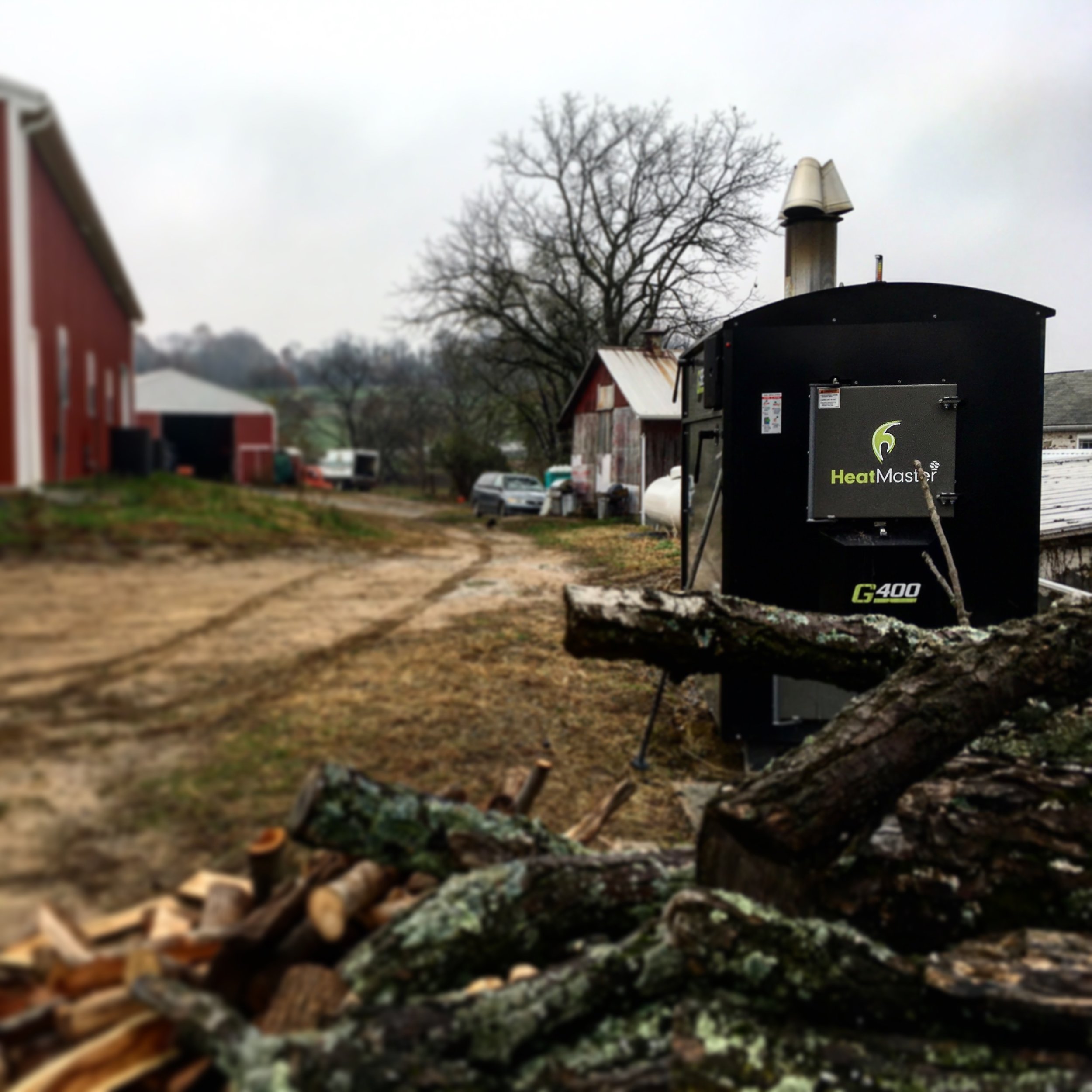
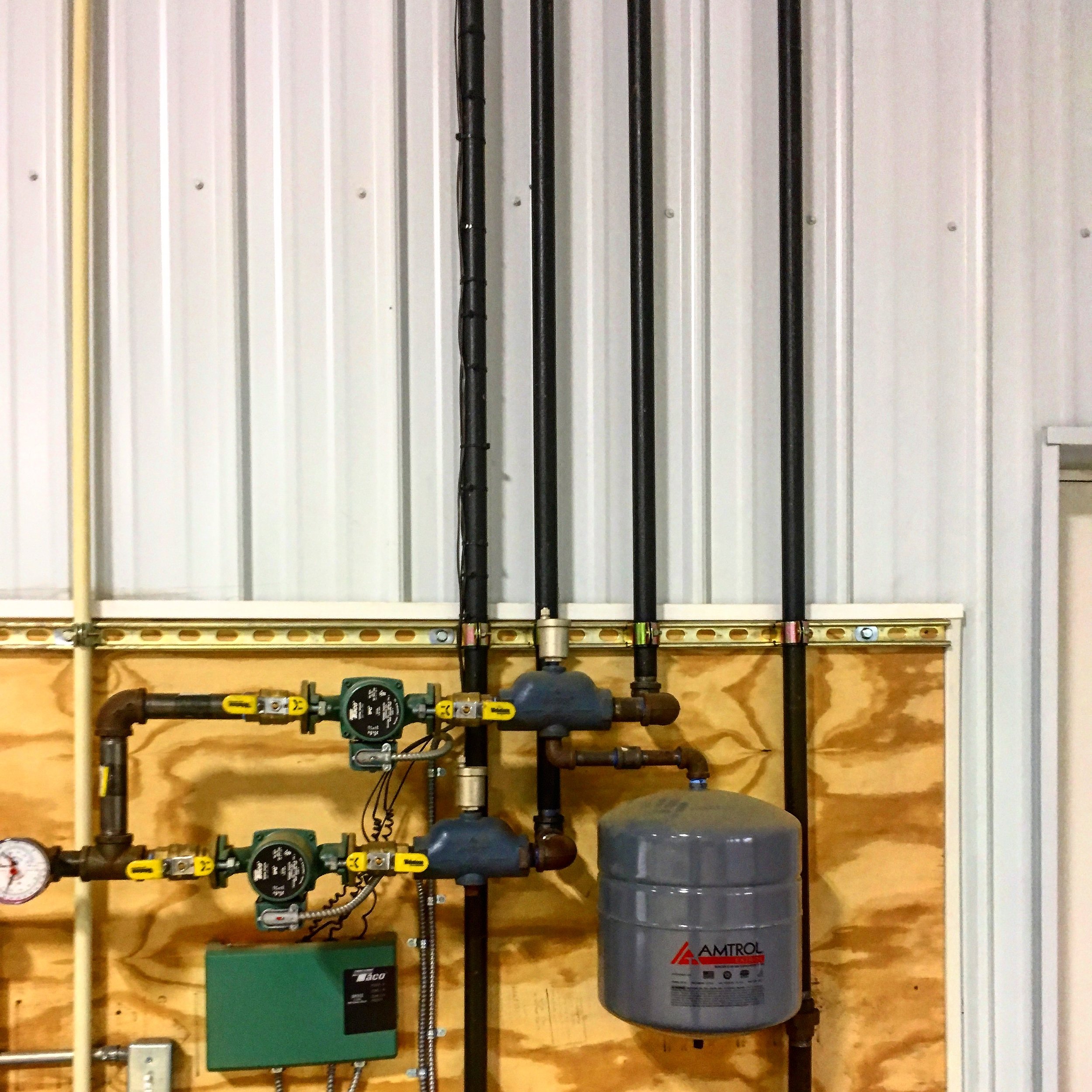
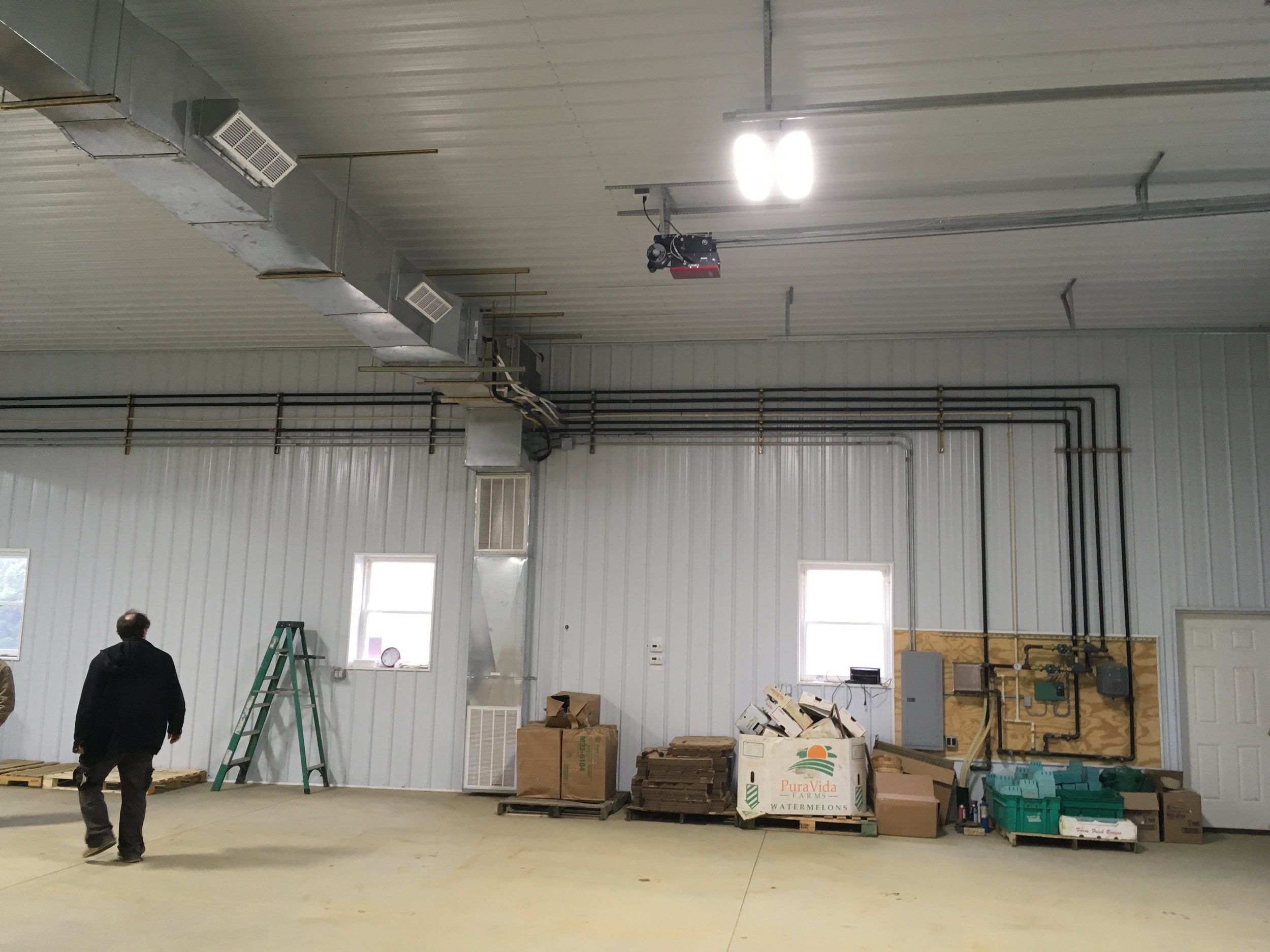
Monday at Eckerton Hill started in the packing barn and ended in the fields.
I am in the barn, listening as the plotting of space and planning of day is discussed. I learn a little bit more about the wood burner that Tim has to heat the farmhouse and packing barn. This thing is bananas. One high efficiency wood burner with heavily insulated underground pipes carries heat to the farmhouse and the packing barn blowers, with a plan to run water tubing through the soil of the longest greenhouse and heat the water running through it. I will learn more about it this Monday next.
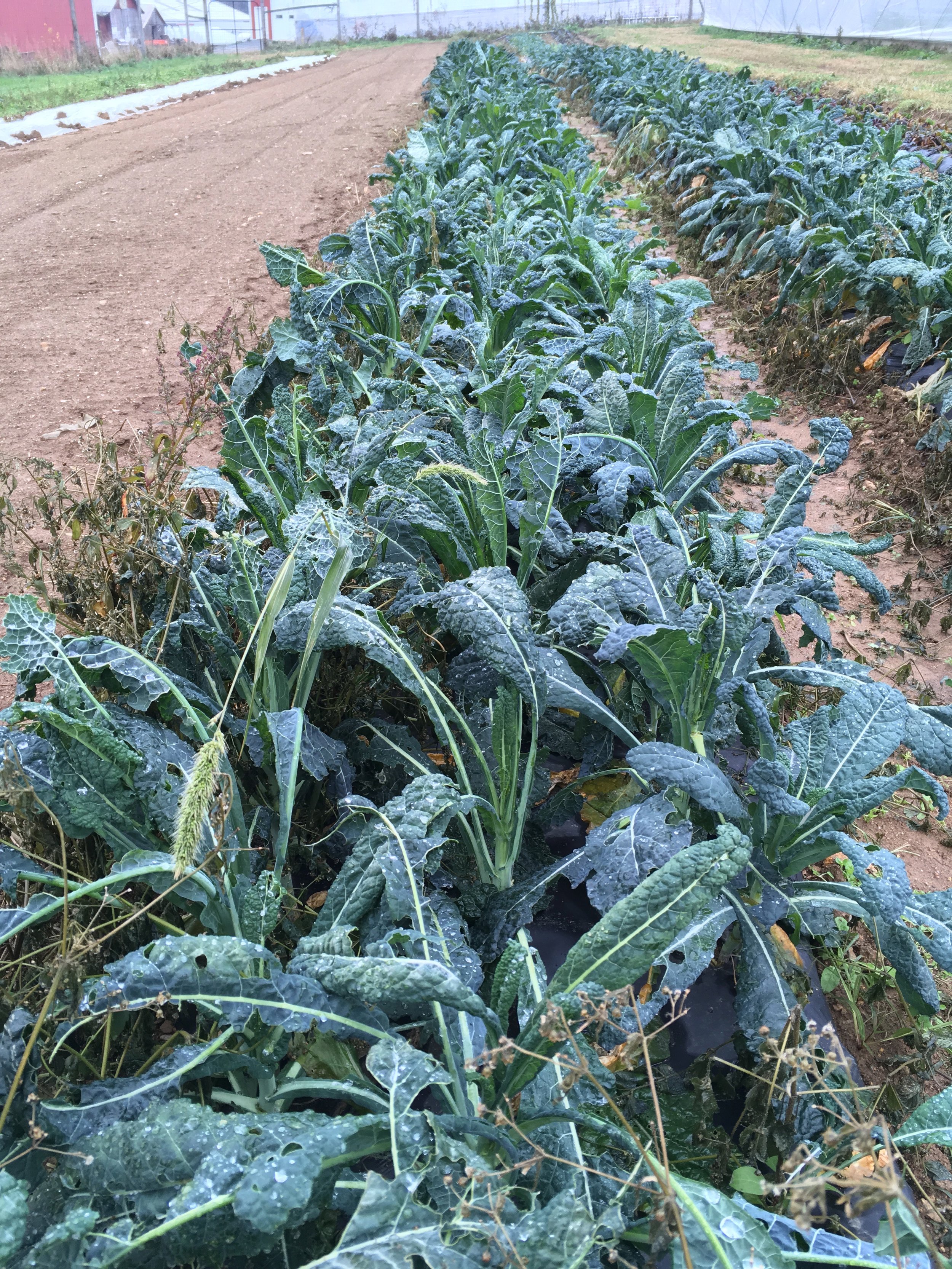
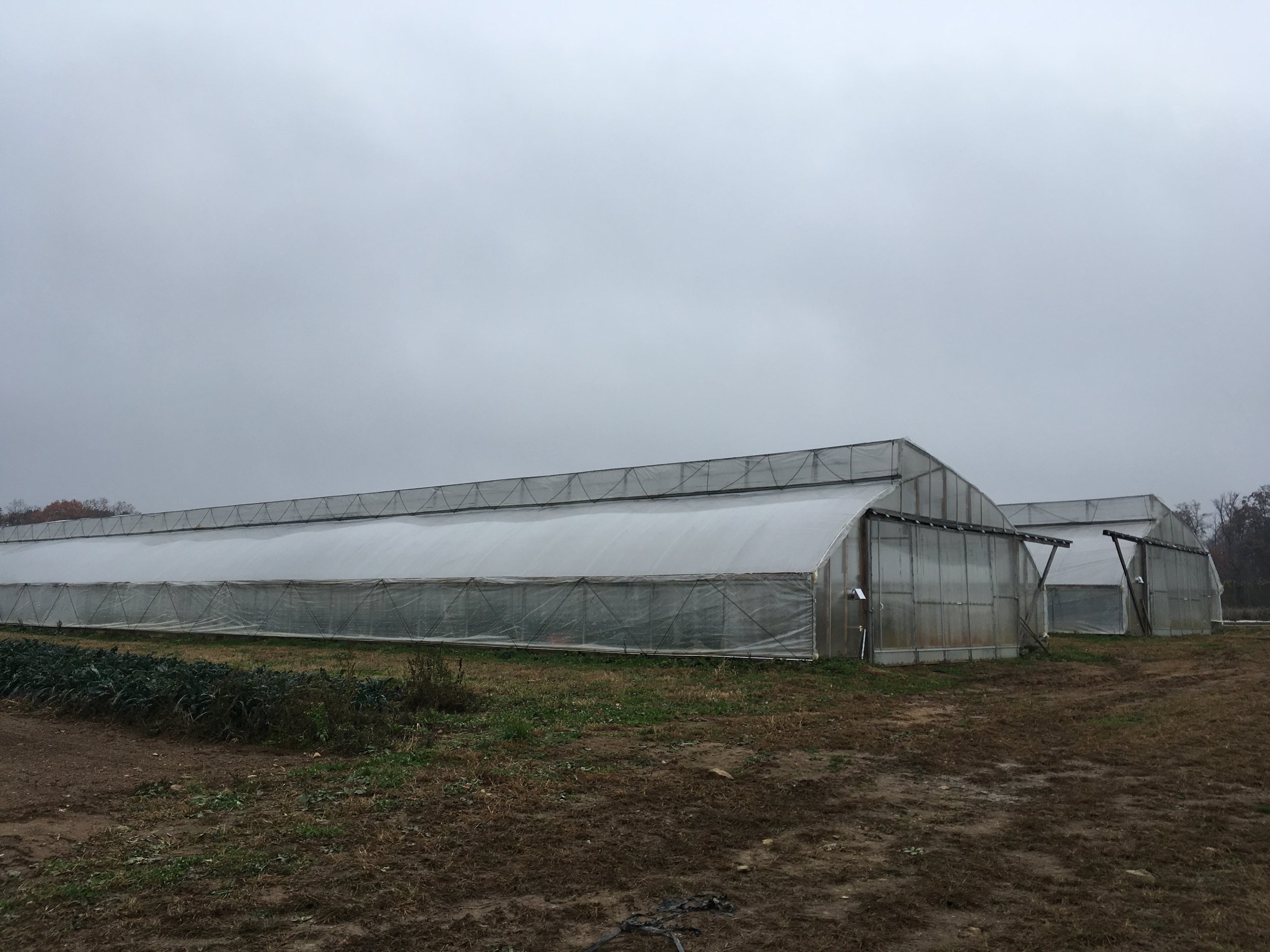
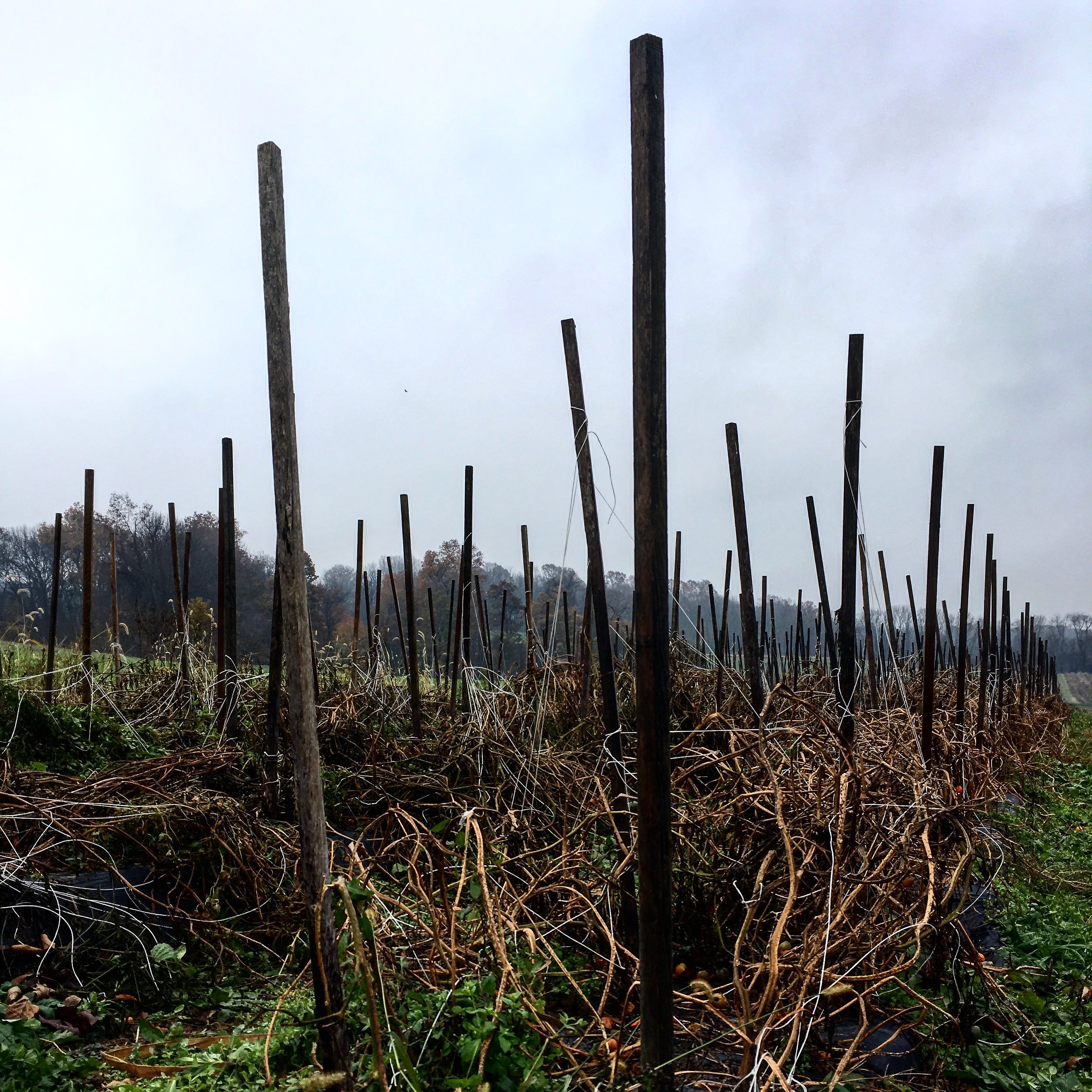
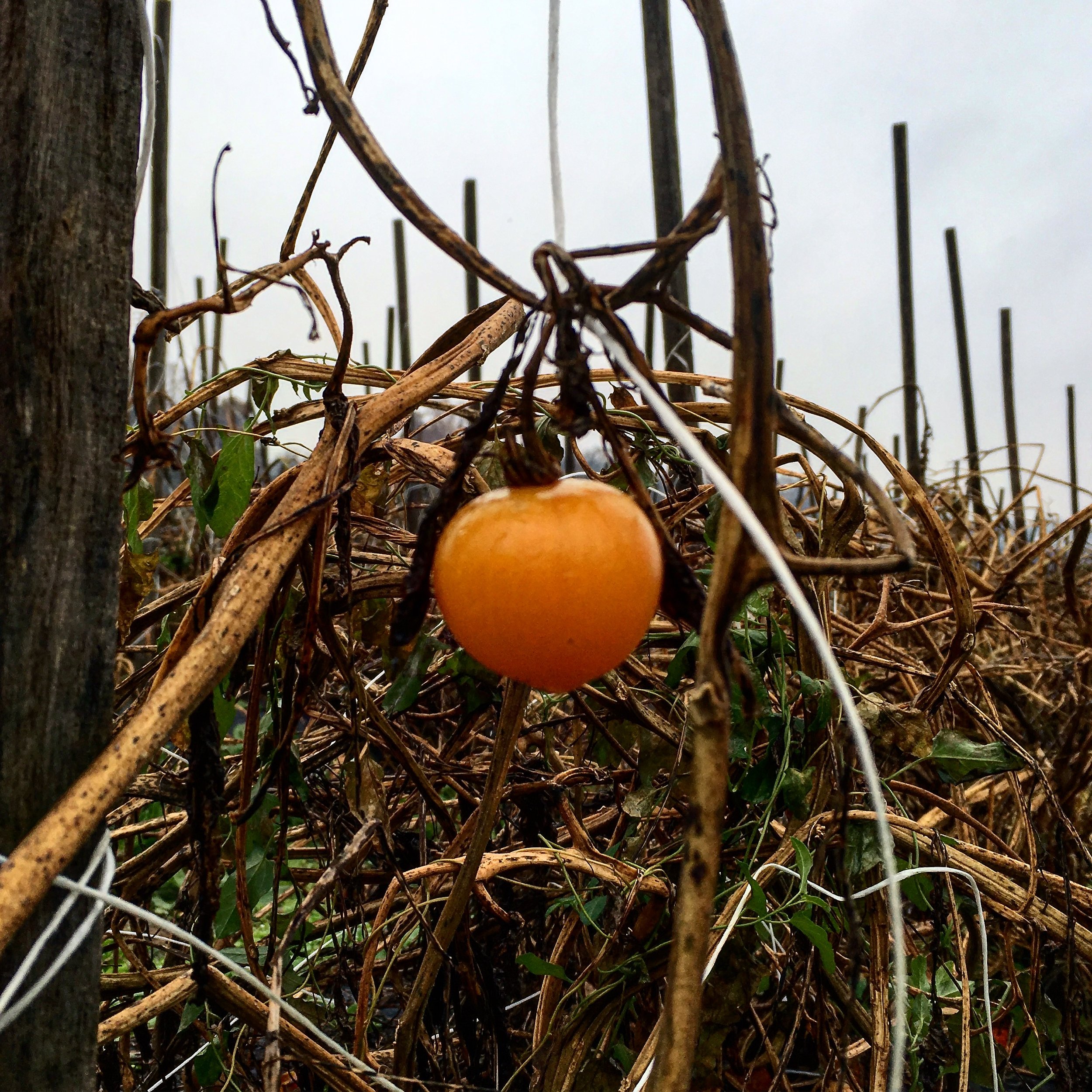
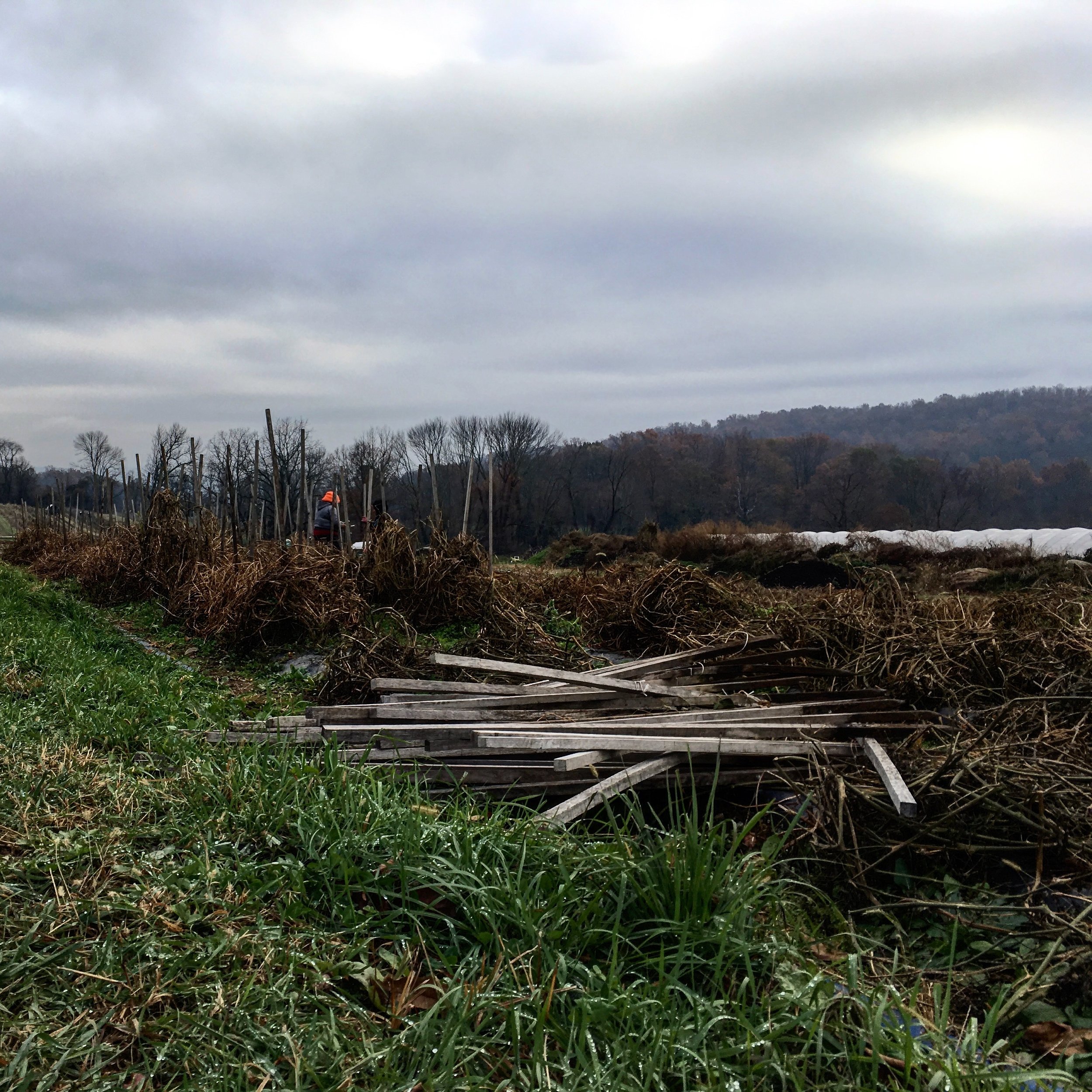
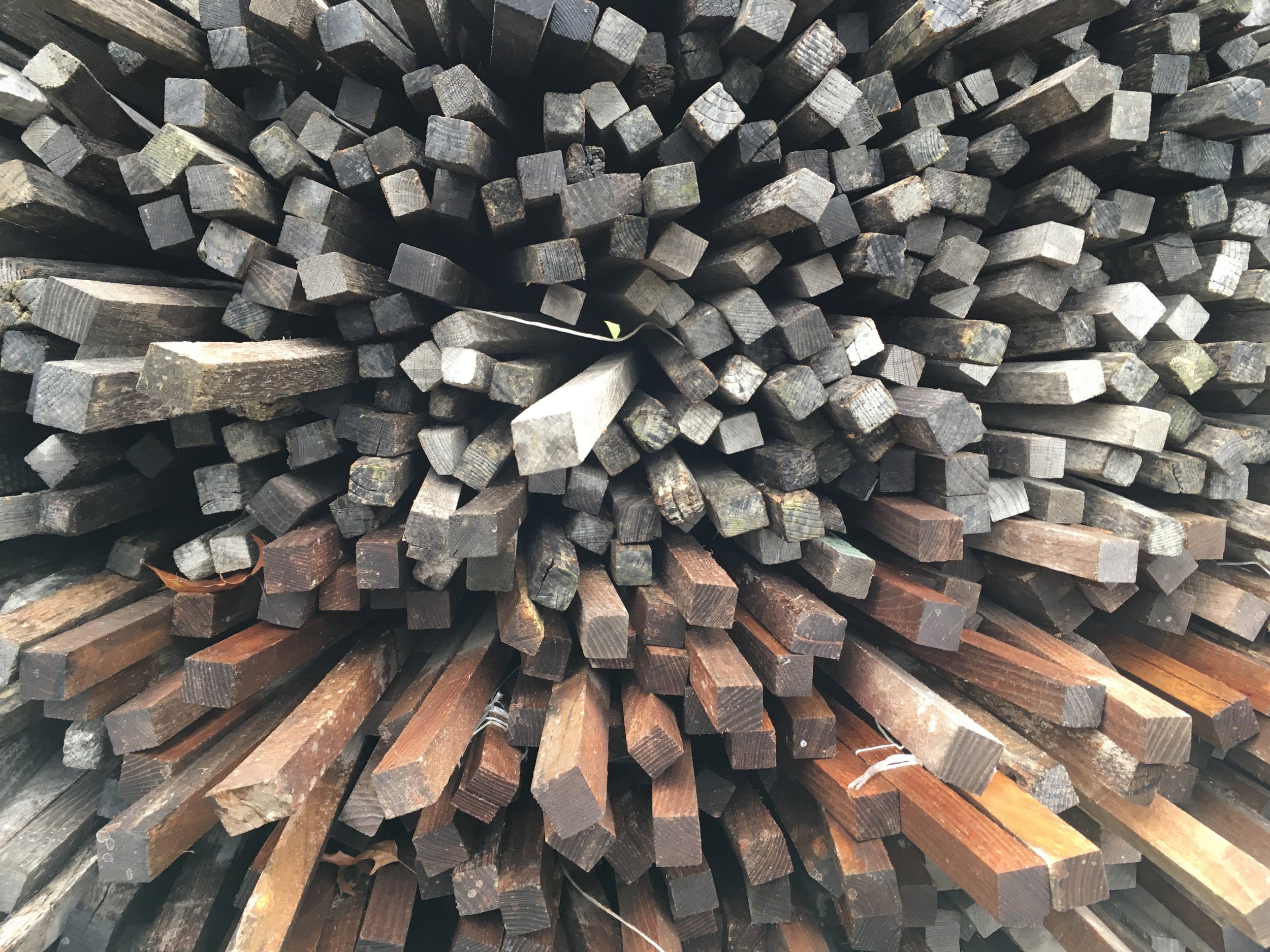
I am with Anna's crew out in the field, collecting twine and pulling up stakes. A second crew can be seen on the other side of the farm, engaged in the same work. With first frost already here, it is a push to get the rows cleaned up and the rye planted.
I again need to leave an hour early for Bug's lesson. There is a holiday concert coming up, and the kids are diligently working to bring it all together every Monday until showtime. I apologize to Eva for ditching early. She smiles, and says it is fine. I work too hard, anyway. I make the walk down from the fields and see Mervin operating a piece of small farm equipment. He is trying to find the electric lines before they start laying a drainage pipe.
The farmers I know are all independent growers who take great pride in their self-reliance and creativity to produce healthy produce through sustainable practices. They may never be famous, and many people who live around them may not know their names, but they have a positive impact on their surrounding communities and the lives they nourish. They are one of the reasons I fell in love with this area in Pennsylvania.
My siblings are all musicians. To this day, I feel like I see them for who they really are when I get to see them play. I feel the same with my friends, the academics, artists, growers and makers. It is an honor to see people doing what they love, seeing them for who they are. I hope my writing does justice to the lives I see. Somedays it will be better than others, but it is always a great pleasure to bring them to you.
